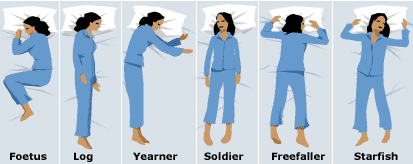This article was my next post but somehow, it got stuck in my inbox for weeks due to work at the office. Today, I finally resolved to get it out and into print.
I found an interesting article in the Inquirer by Cory Quirino. Below is an excerpt from that article:
Age is a result of who you are
By Cory Quirino
Inquirer
09/03/2007
People who survive longest are those who have found balance in several aspects of their lives.
Psychiatrist George Vaillant (Harvard) says the best adapted to their psychological life live longer. This situation is characterized by:
1. Stability in family life
2. Satisfying marriage
3. Hardly living alone
4. Continued growth in career
5. Absence of disabling mental illness
6. Not an alcoholic
7. Few chronic illnesses
Hmmmm…interesting! And I always thought that married people lived shorter lives due to the very hectic schedules of work, children, in-laws, etc.
But doing a little googling, I came across another article that reinforces this one. Carla Garnett wrote a piece on Dr. Linda Waite, professor of sociology and director of the Center on Aging at the University of Chicago, who claims that people who marry live longer and healthier than people who don’t.

Dr. Linda Waite (photo courtesy of The National Institutes of Health)
“Marriage affects health,” she asserted. “Being married, staying married, being part of a married couple changes people’s choices. It changes their behaviors and that changes people’s outcomes — particularly their health outcomes.”
Garnett, in her article, continues,
To link marriage to health, Waite used a large national data set to follow the probability of survival for more than 6,000 adults ages 43 to 65 throughout an 18-year period. The results indicated that many more married women and married men were still alive at age 65; far fewer people who never married, people who divorced, and widowers survived to that age. Widows seemed to retain some of the marriage benefit, with survival rates only slightly lower than those of still-married women. The data indicated that any category of unmarried — never married, separate/divorced or widowed — is unhealthy for men.
She goes on to say (words in parentheses are mine):
Next, she (Waite) explored the family unit and its importance to health. “Family members,” she explained, “bring resources with them into the home” via various support mechanisms: social — “a shoulder to lean on”; instrumental — someone to take out the trash or wash the dishes; and financial — additional household income.
By the same token, family members bring demands: the need for physical care, emotional and financial support, and the inevitable conflict/criticism.
“These family constellations differ in the level of demands relative to the level of resources,” Waite explained. “Too many demands and not enough resources leads to stress. In fact that is the definition of stress. Stress diminishes health directly and it may diminish health by affecting healthy behaviors. Generally, more adults in the household mean more resources; more children mean more demands.”
In study results that will surely boot more live-in in-laws from the family home to less intimate environs, Waite found that even the composition of the household makes a difference to health….
The verdict? Married people who live only with their spouse or with their own children reported the best physical health, while other family configurations — singles living with others, married couples living with parents, or single parents — all reported significantly lower health.
Dr. Waite’s study showed that it is the disruptions that cause further stress and are damaging to one’s health. So between a continuously married person and one who was divorced and remarried, the former seemed to have a better chance at a longer life.
It also showed that continuously married people and never-married individuals had the health advantage. However, Dr. Waite also said that married couples differ from single people in several key measures, including exposure to stress, severity of stress and access to restorative behaviors after stress.
Garnett’s article points out (emphasis is mine):
One conclusion that could be drawn, Waite said, is that it is the permanence and stability provided only by marriage that provides the health dividend. Perhaps people bound by public vows and legal contract are less apt to take risks with their health, less prone to unhealthy behaviors, she surmised. Perhaps husbands and wives fret less about life’s burdens, since they know such cares will be borne and shared by two.
“Married people can specialize,” she concluded. “Two working together can produce more and then trade with each other. They get the advantage of economies of scale. Two can live as cheaply as 1.65, according to recent estimates. Married people also share risks. They form a little insurance pool. And, finally, marriage provides people with social connections, which we know are health-protecting.”
These 2 articles give me a new and fresh perspective on marriage and health. Are they conclusive? Well…if I am to go by the fact that my parents-in-law will celebrate their 60th wedding anniversary this December, there must be some truth to all these.
What do you think?


